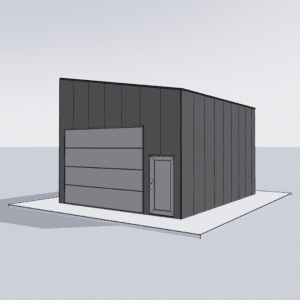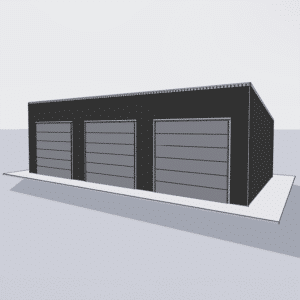Acquiring a new home is akin to embarking on an exhilarating adventure. Yet, without the right map, you might find yourself lost in a maze of foundational cracks and leaky faucets. Conducting a thorough home inspection before buying can be your compass in this critical journey of purchasing your dream home. But, how do you navigate these uncharted waters and ensure your investment is sound? Let’s delve into the art and science of home inspection for buyers and ensure your step forward is mirrored by solid ground.
Understanding the Importance of a Home Inspection
When we talk about a home inspection for buyers, we’re handing you a magnifying glass to discern the intricacies within those four walls. A home inspection isn’t just about ticking boxes; it’s about understanding the true state of your potential future home. Imagine being a detective on a thrilling case, examining clues to ensure this abode is worth your hard-earned money.
The last thing you’d want is a soundtrack of dripping taps or creaky floors reminiscent of a horror movie. A well-conducted home inspection can uncover hidden issues such as plumbing problems, roofing defects, or electrical mishaps that could lead to significant costs if overlooked.
The Inspector’s Toolbox
Think of a home inspection as an orchestra, harmonizing various elements to create a symphony of safety and quality. Here’s a breakdown to ensure you’re playing all the right notes:
1. **Roofing**: The protector of your abode, the roof should be checked for wear and tear, missing shingles, or potential leaks. After all, a secure roof assures you’ll stay dry during those drizzly autumn nights.
2. **Foundation and Structure**: Consider this the backbone of your house. Inspectors will look for cracks and water damage that could signal bigger structural issues. Remember, a strong foundation is crucial for your home’s longevity.
3. **Plumbing Systems**: Imagine turning on the tap and meeting an unwelcome flood of rusty water. Inspectors ensure the plumbing is up to par, with pipes and drains functioning efficiently.
4. **Electrical Systems**: Flickering lights should only be part of a romantic dinner setup. Inspections identify outdated wiring or overloaded circuits that could pose severe safety hazards.
5. **Heating and Cooling**: Ensuring energy efficiency and comfort, inspectors will assess HVAC systems for reliability and performance.
What to Expect During a Home Inspection
Navigate the process of a home inspection with the aplomb of a virtuoso conductor leading an orchestra. Here’s what typically happens during this crucial stage:
– **Duration**: A comprehensive inspection can last between two to four hours, depending on the size and age of the home.
– **Participation**: Join the inspection to learn first-hand about potential issues. Think of it as a backstage pass to your future home.
– **Report Findings**: Post-inspection, you’ll receive a detailed report outlining the inspector’s findings. This is your guide to negotiating repairs or adjusting your offer.

Preparing for Your Home Inspection
Preparation is key, not only for a successful inspection but also for making informed decisions regarding repairs and negotiations. Here are steps to help you brace for this all-important check:
– **Choose a Qualified Inspector**: Engage a seasoned professional with a proven track record. Online platforms like Zillow can provide valuable reviews and references.
– **Know What Inspections Entail**: While a general inspection covers most bases, you might need specialized assessments for issues like radon or asbestos based on your region and the age of the house.
– **Document Questions**: Make a list of any queries or concerns you may have. This ensures nothing is left in the dark, spotlighting your pivotal info-gathering session.
Using the Inspection Report to Your Advantage
The inspection is done, and you’re sitting with a hefty folder of findings. Now what? This document is your blueprint to wield power in handshakes and negotiations.
Reading Between the Lines
Your report will divide issues into minor, moderate, and major concerns. While minor tweaks can often be brushed aside, moderate to significant findings should prompt renegotiations. Leverage this information to either request repairs or lower your offer.
Strategizing with the Seller
Use diplomacy as your toolkit. Sellers might agree to tackle some repairs or offer credits against the sale price. Showing flexibility and understanding creates a win-win situation where both parties feel valued.
Thinking Long Term
Owning a home means embracing a journey that spans decades. Therefore, focus on long-term fixes rather than quick, temporary solutions. For instance, if the HVAC system is old but functional, consider setting aside funds for future replacement rather than expediting negotiations on irrelevant doctrines.
Bringing in Expert Business Partners
The journey of buying a home isn’t a solo voyage; it involves engaging partners who help you cross the finish line smoothly. Experts like Your Building Team can offer insights about dealing with construction delays, should you decide to embark on a new project or renovations.
Moreover, exploring residential construction options or understanding metal building systems Ontario could open new possibilities on revamping or enhancing your newly acquired space.
Conclusion
Conducting a home inspection before buying is the keystone in defining your potential property’s value and integrity. Imagine it as a lighthouse guiding the ship of your home purchase toward safe shores. By preparing thoroughly and understanding what to expect, you mitigate risks and enhance peace of mind. Remember, this isn’t merely about inspecting walls and floors; it’s about setting the stage for everlasting memories. Embrace the process with optimism and pragmatism, and step confidently into the welcoming embrace of homeownership.










